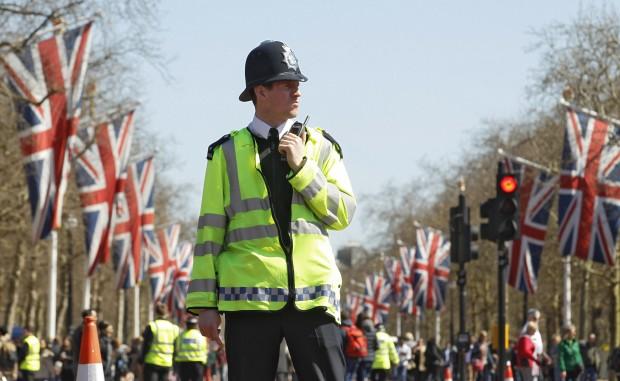Is it Legal to Film Police in London?
A police officer patrols the Mall a day before the London Marathon April 20, 2013. Britain is increasing police numbers by 40 percent for Sunday’s London marathon as part of an effort to reassure competitors and spectators after bombs devastated the Boston race on Monday. REUTERS//Luke MacGregor (BRITAIN – Tags: SPORT ATHLETICS CRIME LAW CITYSCAPE ROYALS ENTERTAINMENT TRAVEL) – RTXYT9Q
Cameras are everywhere: in our pockets and on our streets. But what happens when we turn those cameras on members of law enforcement?
In 2009, filmmakers Fred Grace and Gemma Atkinson were returning from a meeting in London. As they exited a subway (‘Tube’) station, Fred was stopped by officers from London’s Metropolitan Police and searched for drugs—a procedure called ‘stop and search’ that’s become common in the city. Grace had no drugs in his possession.
Atkinson, Grace’s partner, filmed the encounter on her smartphone.
What happened next led Atkinson and Grace to challenge the way British law was being interpreted, and—now—an animated film about their experience.
The filmmakers spoke from London with The World’s Marco Werman.
Filming police in the US
Here in the United States, people here have been arrested for videotaping the police on the job. But in most states, the law allows citizens to film the police in public, so long as they don’t disrupt or interfere with their work.
The ACLU and other civil liberties groups argue that the First Amendment protects the right to film or photograph police.
But local laws across the country do vary, and questions of consent, privacy, and civil disobedience leave a lot open to interpretation, both for police officers and the courts.
